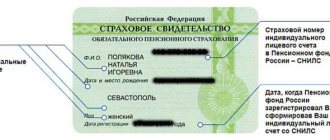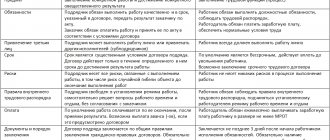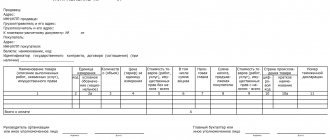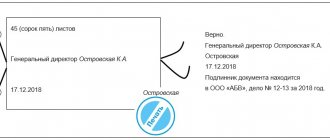Home / Labor Law / Responsibility / Disciplinary
Back
Published: 05/09/2017
Reading time: 7 min
0
1957
The legislation of the Russian Federation provides for clearly established rules and norms of behavior, violating which a citizen commits an offense or a crime, depending on whether this action belongs to a particular area of offenses.
Misdemeanors, in turn, are of several types: civil, administrative, disciplinary.
The main feature of a disciplinary offense is that it is closely related to labor relations.
- What is disciplinary action?
- What constitutes disciplinary offences?
- What is not considered a disciplinary offense?
- Penalties
Dear readers! To solve your problem, call hotline 8 or ask a question on the website. It's free.
Ask a Question
What is the essence of labor discipline?
Each employer establishes a number of specific rules of labor discipline, which are reflected in documents such as:
- internal labor regulations;
- collective agreement;
- an employment contract with a specific employee;
- employee's job responsibilities;
- labor protection instructions;
- legal requirements and internal regulations.
The employee is obliged to comply with these rules (Article 21, 189 of the Labor Code of the Russian Federation), and the employer has the right to reward the employee for their conscientious compliance (Article 22, 191 of the Labor Code of the Russian Federation) and to punish for non-compliance or improper execution (Article 22, 192 of the Labor Code of the Russian Federation ).
To punish an employee, you need to establish:
- whether the disciplinary offense is among those for which punishment can be applied;
- whether all prerequisites for filing claims against the employee have been met;
- whether the documents establishing the rules of labor discipline are drawn up correctly.
An employer may exercise the right to punishment if:
- the fact that the employee is familiar with the rules of labor discipline is confirmed;
- the employee is guilty of a disciplinary offense;
- the fact of the existence of the offense is documented;
- the employee is given the opportunity to justify his misconduct;
- all rules established for the procedure for applying punishment have been observed.
The decision to apply punishment must be made by a person who has the right to do so, which is documented for him. It could be:
- an individual who is an employer;
- the head of the organization or another official authorized by him.
Only compliance by the employer with all the rules established for the procedure for applying punishment will give grounds to consider this punishment legal and will not entail negative consequences if the employee decides to challenge it.
Disciplinary offenses under land legislation
Based on the fact that disciplinary liability has been established for a number of land offenses, some scientists classify them as disciplinary offenses in the broad sense of the word.
The subjects of these offenses may be:
- officials of state authorities and local self-government;
- employees of commercial and non-profit organizations.
A mandatory feature of a land disciplinary offense is the bringing of an organization or public entity - the employer - to administrative responsibility for the following land legal torts:
- design, placement and operation of facilities that negatively impact the earth;
- chemical, radioactive, industrial contamination of land.
The procedure for bringing to responsibility and the types of penalties applied are determined in accordance with service and labor legislation.
For what offenses does an employer have the right to punish an employee?
A violation that fits into the concept of a disciplinary offense will be one that will be regarded as failure to fulfill or improper performance of labor duties by the employee, if this is his fault. For example, signs of disciplinary misconduct are present when an employee:
- is absent from the workplace specified in the employment contract for some time; At the same time, it must be borne in mind that absence from a place considered to be work may also be due to official needs;
- refuses to fulfill labor duties according to the changed labor standards, which are approved by the employer and of which the employee is notified;
- refuses to undergo mandatory procedures before being allowed to work (medical examination, training in equipment operation rules or safety exams);
- refuses to sign an agreement on full financial liability if the nature of his activity requires the conclusion of such an agreement, and he was notified of this;
- refuses to carry out a lawful order of the manager, despite an explanation to him of the unfoundedness of such a refusal and an indication of the possible consequences.
Depending on the employee’s previous behavior, the severity of the disciplinary offense, and the consequences resulting from it, the employer, after going through the mandatory procedure of documenting the violation, selects one of the disciplinary measures allowed by law, unless other measures of influence are provided for a specific category of employees (Article 192). Labor Code of the Russian Federation):
- comment;
- rebuke;
- dismissal.
At the same time, dismissal is considered a last resort and becomes permissible when serious disciplinary offenses are committed.
Read more about reprimand in the article “Reprimand as a disciplinary sanction (nuances).”
How does a disciplinary offense differ from other types of violations?
- If there are rules, then, accordingly, there may be those who break them. The norms and rules established in society are divided into groups that are regulated by separate legal institutions. Depending on what branch of legislation the committed offense belongs to, it can be classified either as a crime or as a misdemeanor. In this case, the offense can be administrative, disciplinary or civil.
An employee, while at his workplace, may well commit any of the above offenses. However, a disciplinary offense has one characteristic feature that is unique to it: it, unlike others, is firmly connected with the performance of labor duties.
What is included in the list of gross misconduct?
Gross disciplinary offenses, in some cases giving grounds for dismissal even for a single violation (Clause 6 of Article 81 of the Labor Code of the Russian Federation), are listed in Art. 81, paragraph 1, art. 336 and art. 348.11 Labor Code of the Russian Federation. This:
- repeated disciplinary offenses (clause 5 of Article 81);
- absenteeism, which is considered absence from the workplace throughout the entire working day or shift or for more than 4 hours in a row (subparagraph “a”, paragraph 6 of Article 81);
- appearing at the workplace in a state of alcoholic or other intoxication (subparagraph “b”, paragraph 6 of Article 81);
- disclosure of information related to state, commercial, official, personal or other secrets (subparagraph “c”, paragraph 6 of Article 81);
- destruction, damage or theft of someone else’s property, the fact of which is established by law (subparagraph “d”, paragraph 6 of Article 81);
- violation of labor protection requirements, which resulted in the emergence of a threat or the onset of serious consequences for people and property (subparagraph “e”, paragraph 6 of Article 81);
- the commission by a financially responsible person of actions that raise doubts about his honesty (clause 7 of Article 81);
- concealment by an employee of information about property belonging to his family, if this gives grounds for loss of confidence in him (clause 7.1 of Article 81);
- the teacher commits an immoral act (clause 8 of Article 81);
- adoption by a person who is among the leaders of an organization of a decision that resulted in material damage to it (clause 9 of Article 81);
- gross violation by a person who is among the leaders of the organization of his direct labor duties (clause 10 of article 81);
- not the first gross violation of the charter of an educational organization by a teaching employee in a year (clause 1 of Article 336);
- disqualification of an athlete or violation of anti-doping rules (Article 348.11).
What is the procedure for imposing and removing penalties?
Any disciplinary offense must be documented: a report from the immediate superior of the violator addressed to the head of the employer or an act of disciplinary offense, which is usually drawn up by personnel department employees, as well as other documents confirming the existence of a violation, or testimony of witnesses.
Before applying sanctions, the employer needs to request an explanation from the employee, which he must give within 2 days in any form (in writing). But the employee may refuse to give such explanations, and in this case, in the presence of witnesses, it is necessary to draw up a report on this.
If the fact of a disciplinary offense is indisputable (the employee’s guilt in violating labor duties has been established) and there are no circumstances justifying it (for example, disability, unforeseen circumstances, a call to law enforcement), then it becomes possible to impose a penalty. Moreover, even in the event of a serious violation, it is not necessary to resort to dismissal.
IMPORTANT! For one disciplinary offense there can be only one punishment (Article 193 of the Labor Code of the Russian Federation). It is reflected in the order, which, no later than 3 working days from the date of execution, is provided to the employee for review against signature. The latter’s refusal to sign the order is also documented in an act.
The penalty can be applied within 1 month from the date of detection of the disciplinary offense and no later than six months (and for financial violations - 2 years) from the date of its commission, taking into account the periods of absence from work allowed by law (Article 193 of the Labor Code of the Russian Federation).
Failure to comply with the procedure for imposing a penalty (documentation, sequence of steps, deadlines), especially in the case of dismissal, may lead to its recognition as illegal.
A disciplinary sanction is automatically lifted after a year in the absence of a new disciplinary offense (Article 194 of the Labor Code of the Russian Federation). But early withdrawal is also allowed on the initiative of:
- employer's manuals;
- the employee's immediate supervisor;
- labor collective;
- the employee himself.
In relation to the removal of punishment, an order is also issued, which serves as the basis for a corresponding entry in the employee’s personnel documents.
For information about what personnel documents need to be prepared for each hired employee, read the article “Personnel documents that must be in the organization.”
Employer's procedure
- main points of the TC;
- job descriptions;
- an employment contract, which can be individual or collective;
- work or technological instructions;
- documents related to labor protection in the company;
- legislative acts.
The employee must become familiar with the contents of the above documents before starting work, and must sign it. Only in this case will he know what actions may be regarded as misconduct in the company.
- Based on Art. 192 of the Labor Code of the Russian Federation, disciplinary sanctions are not applied until the cause of the offense is clarified. The subordinate must present an appropriate explanatory note.
- If the reason is not valid, an order is issued. When it comes to terminating an employment contract, a document in the T-8 form is used. Within 3 days, the employee must familiarize himself with it against signature.
- The order is endorsed by the head of the legal service or an authorized lawyer of the company. It is important to comply with this requirement because having his visa means that all legal norms have been met.
Also see “Sample order for disciplinary action: how to draw it up correctly.”
When can a separate punishment be applied for each offense?
If the employee continues to commit offenses, he may be punished separately for each of the disciplinary offenses he has committed (and it is permissible to apply new types of punishments up to and including dismissal) in the following cases:
- a continuing violation, i.e. when an employee continues to commit a disciplinary offense for which he is punished, and it is obvious that the first punishment did not help;
- periodic violations similar to the violation for which the employee has already been punished;
- committing a new type of disciplinary offense.
When is punishment illegal?
The punishment may be considered illegal if:
- the employee’s guilt in a disciplinary offense is absent, is not related to labor functions or has not been proven;
- there is no written confirmation of the fact that the employee timely familiarized himself (on receipt) with local acts establishing the rules of labor discipline and the list of job responsibilities;
- in local acts there is no record of their coordination with a trade union organization or that such an organization has not been created;
- an explanatory note regarding a disciplinary offense was requested from the employee after a penalty was imposed on him;
- the set of documents substantiating the fact of a disciplinary offense is incomplete;
- the decision to collect was made by a person who is not authorized to do so;
- the deadlines for completing documents related to a disciplinary offense or making a decision on punishment were not met.










